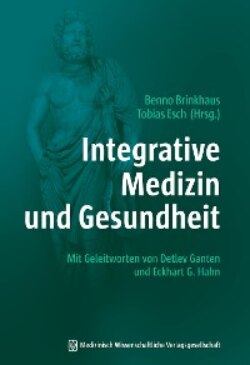Читать книгу Integrative Medizin und Gesundheit - Группа авторов - Страница 69
Summary
ОглавлениеClose cooperation between various healthcare professions can substantially improve the quality of patient-centered care. Success depends not only on the extent to which individuals are prepared to overcome professional boundaries and to work for the well-being of patients, relatives and population groups. Rather, interprofessionality as a concept requires continuous interaction and exchange of knowledge between professionals in order to solve or research educational- and healthcare-related issues. Interprofessionalism is embedded in a population- and demand-oriented approach. Strategies for joint goal-setting and an improvement in interactions between the professional groups are required as well as appropriate training and further educational concepts. To provide guidance in this regard, the Interprofessional Education Collaborative (IPEC) has developed four competency domains: Values and ethics, roles and responsibilities, interprofessional communication, as well as team and teamwork.
Although interprofessionalism and Integrative Medicine pursue the same goals, the respective discourses have so far been conducted largely independently of each other. Interprofessionalism has dealt with questions about roles, assumptions of responsibility and educational concepts in communicative negotiation processes, while normative questions about treatment and therapy options have arisen in Integrative Medicine. Both concepts can be combined profitably.
Training concepts for interprofessional collaboration can be adopted almost without any restrictions when it comes to Integrative Medicine. To this end, the Academic Collaborative for Integrative Health extends the IPEC competency domains by two further steps: Evidence-based and -informed care practice and the integration of non-conventionally and/or academically trained service providers into healthcare delivery structures. At the end of this chapter, two best practice examples will be discussed. Experiences of emerging challenges and successful practice-based interventions are presented to show interprofessional collaboration in the context of Mind Body Medicine. The illustration of the cross-course cooperation in the field of Complementary Medicine makes it clear what kinds of new possibilities have been opened up by the interlocking of interprofessionalism and Integrative Medicine.
